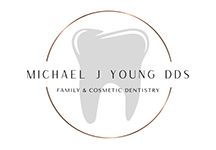 When teeth grinding or clenching has become a chronic problem, it’s known as bruxism. Some may be aware that they’re grinding their teeth already – however, in most cases, the condition occurs throughout the sleep cycle (known as sleep bruxism). While there isn’t one specific cause for teeth grinding, there are several lifestyle factors that can contribute to the habit. Along the same lines, there isn’t one single treatment either. Instead, there are a multitude of things you could do to alleviate the pressure from your teeth – from simple lifestyle changes to dental appliances, your dentist can help you to determine the best route for you.
When teeth grinding or clenching has become a chronic problem, it’s known as bruxism. Some may be aware that they’re grinding their teeth already – however, in most cases, the condition occurs throughout the sleep cycle (known as sleep bruxism). While there isn’t one specific cause for teeth grinding, there are several lifestyle factors that can contribute to the habit. Along the same lines, there isn’t one single treatment either. Instead, there are a multitude of things you could do to alleviate the pressure from your teeth – from simple lifestyle changes to dental appliances, your dentist can help you to determine the best route for you.
How Does Bruxism Start?
Teeth grinding can occur at any age, even if you’ve never done it before. Children who grind their teeth often grow out of the habit before it becomes damaging, however, we can’t say the same for adults. In severe cases, adults who persistently clench, gnash, or grind their teeth could end up chipping, breaking, or even losing teeth altogether. Several things may contribute to the subconscious pressure you’re applying on your teeth; hyperactivity, stress, anxiety, sleep apnea, malocclusion, or sometimes, it can occur as a side effect to certain medications.
Stop Bruxism
Knowing the factors that can contribute to bruxism is important to understand how to go about correcting the behavior. For example, if you find that your jaw hurts more often when you’re under a lot of stress – stress relief therapies could help your body learn to relax under pressure. Likewise with behavior therapy or anger management therapy for other emotional factors that play into your behavior.
While therapy will absolutely help in the long run, it may take time and likely won’t stop you from grinding or clenching immediately. And, medications – even muscle relaxants – haven’t really proven to be very effective in helping the condition. So, to further protect your teeth while seeking treatment for the underlying cause behind your individual condition, your dentist may recommend an oral appliance. A splint or mouth guard are both highly recommended to wear while you sleep, plus they’re custom made for a comfortable fit! It may even help reduce your stress just from knowing your teeth won’t be damaged.
